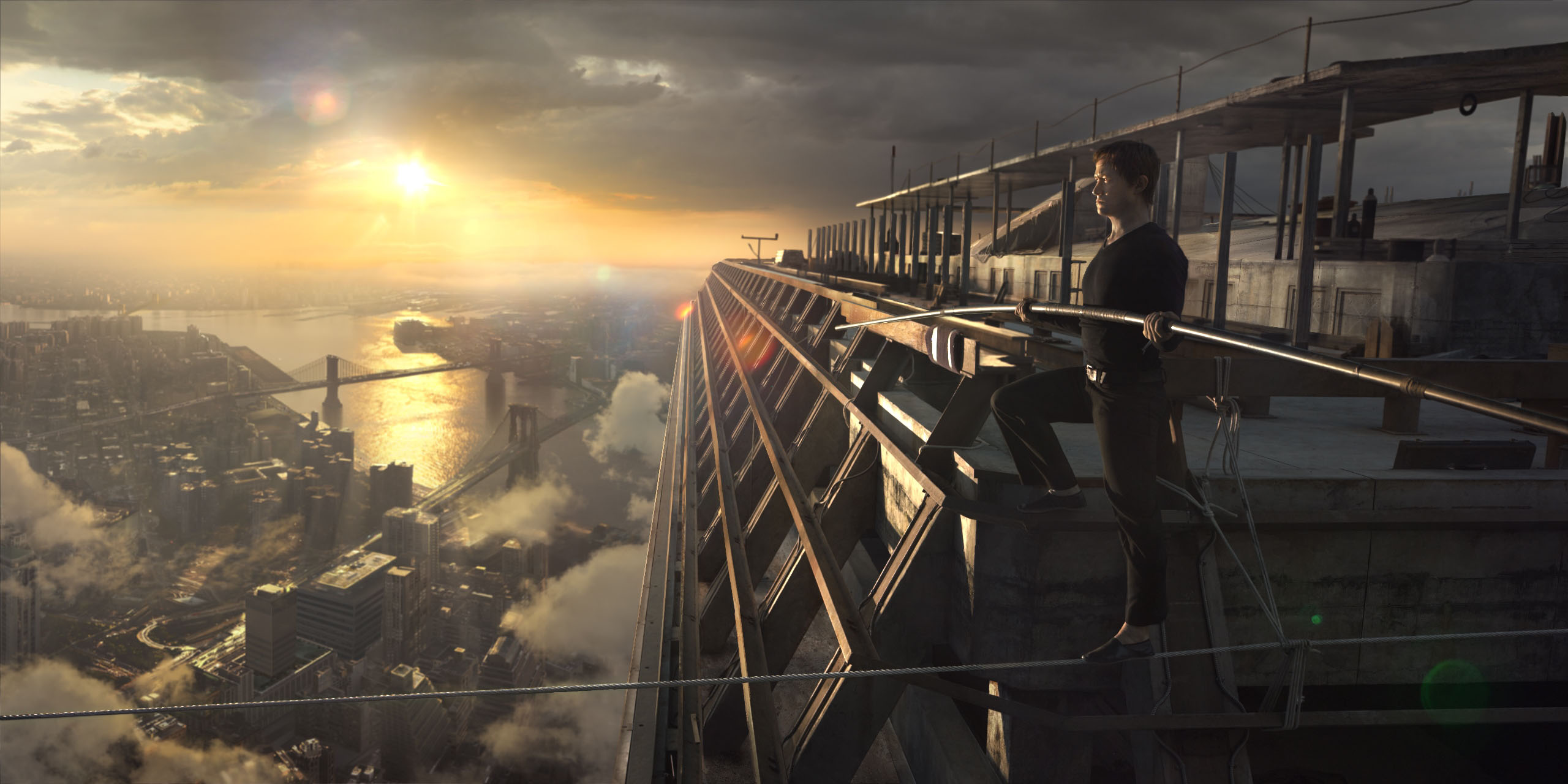If you could go back to one particular moment in history, what would it be? Someone (most likely the devil) must have asked Robert Zemeckis that question several times during his career and, in a way, many of his films could be described as different answers. In fact, the films Zemeckis is most well known for — the "Back to the Future" franchise — were a marvelous response to that very question. "Forrest Gump" was also one big riff on the query. Even Tom Hanks silently played it over and over in his mind as he sat on that desert island in "Cast Away," wondering if there was a way he could alter his fate by going back to a pivotal moment or redoing an irrevocable choice.
That point is brought home with both soaring enthrallment and piercing sadness in Zemeckis' "The Walk." It takes us to a specific point in time and place: the top of the World Trade Center's twin towers in New York City on Aug. 7, 1974. The towers were spanking new, imposingly tall and had yet to endear themselves to New Yorkers — apparently some of the offices were still vacant. However, they soon got a memorable christening (more like a hug) from French tightrope walker Philippe Petit. Using just a cable wire and a balancing pole, Petit walked over the void from one tower to the other, a feat that remains his alone and, due to the events of Sept. 11, 2001, can never be duplicated.
Any discussion of Petit in the movies must reference "Man on Wire," the multiple award-winning 2008 documentary by James Marsh. This earlier film is a totally different animal from Zemeckis' production. It is earnest, sincere and uses real-life photographs of Petit's feat, which is all that remains as proof of his crossing. "The Walk," on the other hand, is an endless gasp-inducer. Zemeckis brings the weight of his Hollywood clout to bear — a full arsenal of CG, IMAX and 3-D — and recreates the details of the historic walk with surgical precision, and from multiple angles. That "walk" is practically hammered into the viewers' retina and, when it comes down to lasting cinematic visuals (and last words), the film has a huge advantage over "Man on Wire."

















With your current subscription plan you can comment on stories. However, before writing your first comment, please create a display name in the Profile section of your subscriber account page.